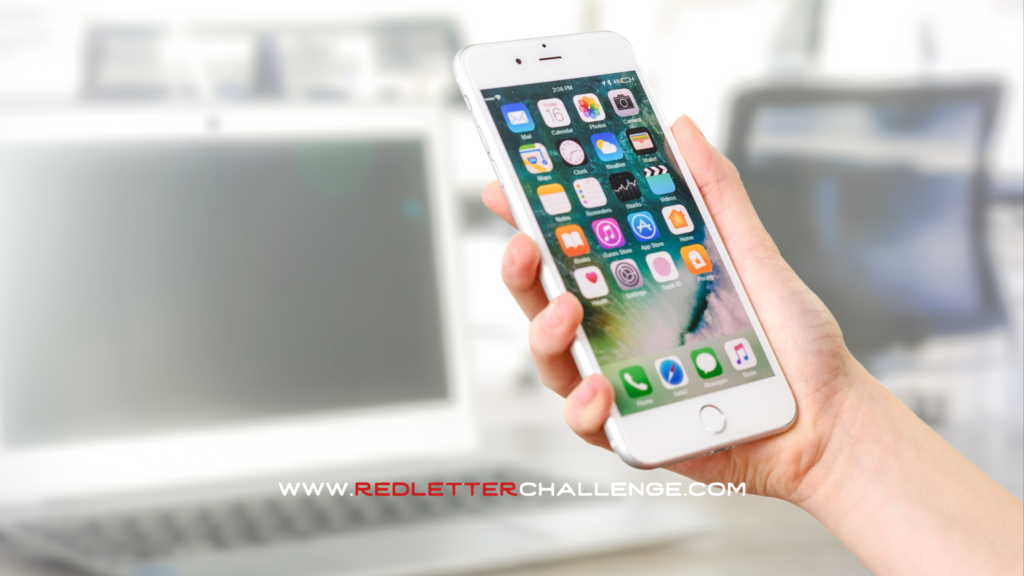

Listen to these warnings and try to decide what they are referencing:
• Negatively affects your eyesight
• Causes anxiety through chronic information or brain overload or overstimulation
• Can give you constipation and other medical ailments due to decreased activity
• Recognized by the medical community as addictive, psychological, and it will affect sleep habits negatively
If you said smartphones you would be wrong.
These were warnings actually written and spoken in history against books and literacy.
For centuries physicians, poets, philosophers, teachers, and other respected members of the community warned against books and the educating of the masses. The rise of the printing press gave way to more and more literature shifting people’s practices to center more around reading in their homes rather than relying on communal spoken word for news.
And people were skeptical at best and fearful at worst.
They weren’t necessarily wrong. Some literature has been used for terrible things throughout history. But we can also see the many wonderful things that have resulted from the spread of books and literacy.
When we contrast the warnings of books with the warnings on smartphones they are remarkably similar. Although smartphones are a new thing, the feelings people have had about them are not.
King Solomon of the Old Testament was the richest and wisest man who deprived himself of nothing. One of the often-misunderstood phrases of Solomon in Ecclesiastes 1:9 is this:
What has been will be again,
what has been done will be done again;
there is nothing new under the sun.
What Solomon is saying in the larger context is not that there won’t be new things, but rather, the fact that there are new things is not a new thing.
Just as books were a new thing at one time, so are smartphones a new thing for our generation. The Bible says God’s mercies are new every day. There are new things, but new things are not new and our feelings about those new things are also not new.
The following chart shows the percentage of Americans who own the following equipment:
Landline Phone Cell Phone Smartphone
1960 80% 0 0
1980 93% 0 0
1990 95% .05% 0
2000 93% 62% 35%
2019 39% 96% 81%
The first iPhone, which revolutionized the industry, was invented just over a decade ago. Steve Jobs said of the iPhone that it was a magical object.
Kevin Noose, writer at the New York Times, says, “Right here, in my pocket, is a device that can summon food, cars and millions of other consumer goods to my door. I can talk with everyone I’ve ever met, create and store a photographic record of my entire life, and tap into the entire corpus of human knowledge with a few swipes.”
Smartphones will continue to be used and are powerful objects. How can we address them as Christian leaders?
With the rapid and sudden rise of this technology, it’s important we understand that these devices are not going away. It’s inappropriate for us to avoid or neglect them completely. It’s also inappropriate to give free reign without any intentionality into how we use these devices.
How do we appropriately steward smartphones? First, we need to realize that with this device comes incredible challenge, but also incredible opportunity.
Your smartphone can either be a terrible master or a terrific servant.
Here’s 3 words that will form a checklist to help you master your smartphone and not be mastered by it.
There is so much content on this device. What content are you consuming?
We are consuming a lot of content through smartphones. According to BankMycell, the average use of smartphones and tablets a day is 4 hours and 33 minutes per day, 1 hour and 16 minutes of social media apps, and over 2167 swipes, clicks, or taps on your phone each day. Ericsson Mobility Report states that back in 2016 the average data being consumed on a smartphone per month was 1.4GB. In 2021, it is estimated that the average user will be 8.9GB of data every single month, more than 6 times the amount from just 5 years earlier.
You know the phrase, “You are what you eat.” What you put in will come out.
People who feed their minds with lots of entertainment develop lazy minds. When we watch too many movies and too much television, we’re letting other people do our thinking for us. Those who feed their minds on a steady diet of celebrity gossip are more prone to become shallow. People who feed their minds on pornography will become sexually immoral in their thoughts and behaviors.
But what of those who feed their minds on quality literature, some educational materials, truly relevant information, and regular Bible Study? They become wise and sought-after leaders.
The Bible says it this way in Romans 8:5: “Those who live according to the flesh set their minds on the things of the flesh, but those who live according to the Spirit, the things of this Spirit.”
What content are you consuming? Look at your app usage and you can get a good picture.
Have you ever noticed that the word content is in the word contentment?
The content you consume has a direct impact on your level of contentment in this world.
If you are not content, it’s because you are not consuming godly content. So is the content you are consuming bringing you to more contentment or less contentment?
There have been rises in anxiety and depression since 2011, but specifically amongst teenagers. In 2011, sociologists noticed an unprecedented increase in anxiety and depression among teenagers. As Cal Newport points out in his excellent book Digital Minimalism, the only factor that also dramatically increased at this time was the number of teenagers owning their own smartphone.
Cigna reported before the global pandemic forced many to quarantine that 61% of Americans experienced loneliness.
Today many people claim to have stronger feelings with a person online than in reality. It’s even affected our marriages. Many men and women can become aroused easier having an online encounter with an image or a video than they can with their spouse in-person.
In light of 2020, many of us have been forced to do relationships digitally. And what we’ve found is that you can have some very meaningful, lasting, and rich conversations. It’s amazing to see how advancement in technology has helped us stay somewhat connected in a time where we’ve had to be distanced.
It’s amazing that we can “be there” for one another digitally in ways we’ve never been able before, but we are called to be more than “digital” friends. We are called to do life-on-life. The author of Hebrews reminded the people to “not give up the habit of meeting together, as some are doing.”
We have traded real in-person relationship for cyber-relationships. And that’s not a good stewardship of this powerful machine. When we are stewarding it well, the smartphone, with all of its features, is a great way to be supportive, and help further relationships, but not the primary place that relationships are intended.
As you assess this, has your smartphone (or other devices like it) become your primary or secondary place to help you form and grow in relationship with others?
This is the most powerful communication tool the world has ever seen. That presents great opportunities for us and also great challenges.
There is a term that has come up called “Internet Courage,” and what it represents is that often times people will feel more comfortable using language and saying offensive things on social media, message boards, etc. than they would in person.
The words that we use make a difference. Listen to these two proverbs of Solomon to show how helpful or harmful words can be.
Proverbs 16:24: Kind words are like honey—sweet to the soul and healthy for the body.
Proverbs 11:9: Evil words destroy one’s friends.
Words are not just helpful or harmful for the other person, but for you as well.
Proverbs 11:17: Your own soul is nourished when you are kind, but you destroy yourself when you are cruel.
The world needs our positive voice. We have to communicate, especially in a year where opinions, division, and sides have been drawn. As disciples of Jesus, we cannot all escape and throw away our devices and delete all of our social media accounts. There could be a select few that need to go that way, and likely there may be a few apps or social media accounts that would be wise to delete. But the world needs us as the followers of Jesus to not just consume but to contribute by bringing the voice of Jesus into all things.
As followers of Jesus, we don’t want to make our name great. We want to make His name great. And this device affords us the opportunity, unlike any other time in human history, to do it at levels never before known. We can communicate the Gospel of Jesus like never before through the smartphone.
Use your platform to introduce people to Jesus.

2 Responses